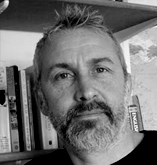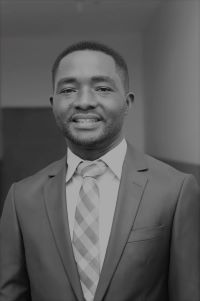The GDPO team is committed to promoting evidence and human rights based drug policy through the comprehensive and rigorous reporting, monitoring and analysis of policy developments at national and international levels.
Team

GDPO DIRECTOR
PROFESSOR DAVID BEWLEY-TAYLOR
David is a Professor of International Relations and Public Policy within the Department of Political and Cultural Studies. He has been researching various aspects of drug policy for over twenty years with his main areas of interest being US drug policy, the UN and international drug policy and more recently counter narcotic strategies in Afghanistan. David has published widely on many of these and other topics, has collaborated with and produced policy reports for a range of drug policy organizations beyond academia and at present is an Associate of the International Drug Policy Consortium and a Associate Fellow of the Transnational Institute’s Drugs and Democracy Programme. He is editor-in-chief of the GDPO Policy Reports, Policy Briefs and Situation Analyses.
View Professor Bewley-Taylor's full Swansea University staff profile here

Swansea University Associate Members
JOE JANES
Joe is a lecturer in Criminology at Swansea University and the Employability Partner for the School of Social Sciences.
Joe holds a PhD in Criminology from Swansea University. His research specialisms are within Harm Reduction and Substance Use as well as Welsh Policy and Devolution within the youth justice system.
Joe is the harm reduction lead for the GDPO, working on projects, including “Spike on a Bike”, in collaboration with the Hywel Dda Health Board and Dyfed Drug and Alcohol Service, alongside a project for Public Health Wales mapping hidden populations of substance users in Wales. Joe has a vested interest in welfare-based approaches to reducing harm and is working in partnership with Ithnic Welfare Services to assess the need for Drug Testing at UK Festivals.
https://www.swansea.ac.uk/staff/j.d.janes/

LUCA TRENTA
Luca Trenta is Associate Professor in International Relations in the Department of Political and Cultural Studies (Swansea University). His current research focuses mainly on the US government’s involvement in the assassination of foreign officials from the Cold War to the present day. He has published articles in IR, Intelligence Studies, and International Law journals. These include works on the Ford Administration and the development of the US ban on assassination, on the Obama Administration use (and legitimation of) targeted killing, and on international society’s response to the expanded notion of imminence and self-defence developed by the United States. Building upon existing work and expertise within the GDPO Drugs and Conflict Project, he has started researching the use of drones in counter-narcotics operations as an area of emerging concern, including in relation to increasing militarization and their potential use in kinetic operations.

MATT WALL
Matt is an Associate Professor of Politics at Swansea University, and is the Programme Director of Swansea's Politics and International Relations undergraduate programmes. Matt also heads up the WISERD Welsh Politics and Governance Research Network and is co-director (along with Dr Paddy McQueen) of Swansea's Political Analysis and Governance Research Group.
Matt holds a PhD in Political Science from Trinity College Dublin and is a Marie Curie Fellow. His research specialism is political analysis and methodology, and his core substantive focus is on digital politics in the conduct of election campaigns. Matt is currently working as part of the technical team with Professor Bewley-Taylor in the development of a Global Drug Policy Index.
https://www.swansea.ac.uk/staff/arts-and-humanities/politics/wall-m/

SENIOR RESEARCH ASSOCIATES
MARTIN JELSMA
Martin Jelsma is founding director of the Drugs & Democracy programme at the Transnational Institute (TNI) in Amsterdam. Established in 1995 the programme analyses trends in the illicit drugs market and in drug policies globally, publishes policy briefings and organises informal policy dialogues and expert seminars around the world. Martin has been an advisor to the Global Commission on Drug Policy; was a member of the Organization of American States scenarios team; collaborates in the GIZ Global Partnership on Drug Policies and Development; is a member of the UNDP/ICHRDP team to develop international human rights guidelines for drug control; has worked closely with farmers involved in illicit cultivation and alternative development; has been involved in the drugs-related aspects of the peace process in Colombia and Myanmar; is a leading expert on the UN drug control system; and regularly advises governments around the world on drug policy reform options. Selected publications include Regime change: Re-visiting the 1961 Single Convention on Narcotic Drugs (International Journal of Drug Policy, 2012, with David Bewley-Taylor); Rise and Decline of Cannabis Prohibition pdf (TNI/GDPO, 2014 with Tom Blickman and David Bewley-Taylor); UNGASS 2016: Prospects for Treaty Reform and UN System-Wide Coherence on Drug Policy (Journal of Drug Policy Analysis, 2016); and Cannabis Regulation and the UN Treaties – Options for Reform (GDPO/TNI et. al. 2016).
.jpg)
DAVID MANSFIELD
David Mansfield has been conducting research on illicit economies in Afghanistan and on its borders each year since 1997. David has a PhD in development studies and is the author of “A State Built on Sand: How opium undermined Afghanistan.” He has produced more than eighty research-based products on rural livelihoods and cross-border economies, many for the Afghanistan Research and Evaluation Unit, and working in close partnership with Alcis. David was also the lead researcher on the Special Inspector General for Afghanistan Reconstruction’s Counter Narcotics: Lessons from the US Experience in Afghanistan, covering the period from 2002- 2017. David has worked on the design, implementation and evaluation of Alternative Development projects in a number of drug producing countries including Pakistan, Bolivia, Laos, and Afghanistan.

Research Associates
HELOISA BROGGIATO
Heloísa Broggiato Matter, PhD in Politics and International Relations from Swansea University, has been researching access to internationally controlled medicines in Brazil and the changes and tensions in international regimes. Her research shows the reasons behind Brazil’s inadequate access to opioids for pain treatment today. It also analyses the history of the international drug control regime under the perspective of access to medicines and how this issue gained traction between 2009 and 2019.
Heloísa is currently senior analyst on health at the Embassy of Switzerland in Beijing. She is a board member of the Vienna NGO Committee on Drugs at the United Nations and has been regularly present at the Commission on Narcotic Drugs’ meetings. Heloísa holds a MA in International Politics and Security Studies from the University of Bradford, UK, a BA in Journalism from the Pontifícia Universidade Católica de São Paulo (PUC) and a BA in Social Sciences by the University of São Paulo (USP). She is a journalist, with more than 15 years of experience in Brazilian and Swiss leading media and communication companies.

ROSS EVENTON
Ross Eventon has been researching conflict, development and drug policy for over a decade. He has worked as a consultant for international organisations, research institutes and governments, and his writing has been published in outlets such as Le Monde Diplomatique and Al Jazeera. He holds an MA in International Relations from Webster Graduate School, and a BSc in Economics from the University of York. He is currently a Phd candidate at the Universidad del Rosario in Bogota, Colombia.
Contact: ross.eventon@urosario.edu.co

ALLAN GILLIES
Allan currently holds the post of ESRC Global Challenges Research Fund Fellow at the School of Social and Political Sciences, University of Glasgow. His project is titled, ‘Illicit Drug Economies, Governance and the Security-Development Nexus in the Global South: a Case Study of State-Narco Networks in Post-Transition Bolivia’. As such, the project engages with debates around the relationship between illicit drug economies and sustainable development, and the future of international counterdrug policy. This builds on Allan’s PhD research, examining interactions between the Bolivian state and the drug trade in the context of an escalating US ‘war on drugs’ in the Andes (1982-1993). Moving beyond the conventional assumptions of ‘drugs, violence and instability’, the thesis reveals how the drug trade became interwoven with informal forms of governance, political order and processes of transition.
Allan has also completed research for the Scottish Government’s Justice Analytical Services, Drug Research Team on growth of new psychoactive substances (NPS) in Scotland, including prevalence of use, supply chains, associated harms and user groups. Publications from this work have informed the Scottish Government’s research agenda around this topic.
Twitter: @AllanJJGillies

MARTIN HORTON-EDDISON
Martin is a Research Officer with the GDPO, and a Ph.D. Candidate at Swansea University. He is a Lecturer in International Relations in Cardiff University's School of Law and Politics. He is also Project Lead on the GDPO's Crypto-Drug Markets project. He holds an MA (Distinction) in International Politics from Hull, and a BScEcon (Hons) in International Politics and Strategic Studies from Aberystwyth. His Ph.D. is entitled ‘Crypto-Drug Markets and the Global Drug Prohibition Regime: A Unique Threat?' The study investigates the transnational crypto-drug market phenomena and the associated challenges for drug control policy, including at the domestic and international levels. Martin's PhD research operates within - and contributes to - international relations regime theory. Martin's recent publications for the GDPO include Policy Brief 11 Hard Interventions and Innovation in CryptoDrug Markets The escrow example, the Situation Analysis Updating Escrow: Demystifying the CDM multisig process, a co-authored methodological piece entitled Corpus Linguistics Methodology on the Silk Road(s): the escrow example as part of a package of work funded by Cherishde, and an assessment of UK parties' drug policy manifesto pledges UK General Election 2017: Where do the parties stand on drug policy?
Twitter @MartinHortonEdd
orcid.org/0000-0003-1997-8220

ELIZA KURCEVIČ
Eliza Kurcevič is a Program Manager with the Eurasian Harm Reduction Association (EHRA). She has an extensive knowledge in drug policy, human rights, community mobilization and capacity building areas in Central and Eastern Europe and Central Asia region. Currently Eliza is working on issues related to new psychoactive substances, advocacy for the innovative harm reduction services, peer involvement into the harm reduction programmes and young people who use drugs. Eliza has studied in Croatia, Hungary and Lithuania. She has Bachelor‘s degree in Law and Master‘s degree in International Law.
CONSTANZA SÁNCHEZ AVILÉS
Constanza Sánchez Avilés is a political scientist and holds a PhD in International Law and International Relations. Her main areas of work are national and international drug control policies and the intersection between drug control, human rights and social justice. From 2007 to 2013 she was lecturer and researcher at the Universitat Pompeu Fabra (Barcelona). She has been visiting scholar at the University of Miami (2010), the University of San Diego (2012) and research assistant at the Global Drug Policy Observatory, UK (2013). She has also conducted fieldwork in Europe, Peru, the United States, Colombia, Mexico and the US-Mexican border.
Constanza currently is the Law, Policy & Human Rights Director at the International Center for Ethnobotanical Education, Research & Service (ICEERS). She regularly participates at the sessions of the UN Commission on Narcotic Drugs and the Human Rights bodies in Geneva, as well as other international meetings as CSO representative. She collaborates with several drug policy institutions and assiduously publishes and lectures on her areas of research.

EDIOMO-UBONG NELSON

Ediomo-Ubong Nelson, trained as a health sociologist, is an associate researcher with the Centre for Research and Information on Substance Abuse in Nigeria. He is also alcohol and drug policy expert with the International Blue Cross. He has participated in many funded research projects on drugs, including the survey of drug use in community setting in Nigeria, funded by the European Union, and ‘alcohol harms to other project’, a multi-country collaborative research supported by the World Health Organization. His research focuses on substance use, criminal justice and public health. He has published in many peer-reviewed journals, notably The International Journal of Drug Policy, Contemporary Drug Problems, Global Public Health and Sociology of Health and Illness.
Contact address:
Centre for Research and Information on Substance Abuse
P.O. Box 4230
University Post Office,
Uyo,
Nigeria E-mail: degreatnelson@yahoo.com
Project Officer
BRANWEN LLOYD
Branwen has worked at Swansea University since 2006 but had previously gained a BA Hons and MBA from Swansea University. Before joining the GDPO in November 2018 she previously worked in the Department of American Studies and the International Development Office and Academi Hywel Teifi.

Research Students / Interns
JACK TUDOR
Jack is a PhD student in the Depart of Political and Cultural Studies at Swansea University. He holds an MA (Distinction) in International Relations from Swansea and a BA(Hons) in History from Lancaster. His research specialism centres on electoral analysis and polling methodology, with his PhD thesis focusing on decomposing the error variance exhibited by pre-election opinion polls. He was part of the rapid academic response to the 2019 UK general election and is presently working alongside Professor Bewley-Taylor and Dr. Wall as part of the technical team behind the development of the Global Drugs Policy Index.

FORMER TEAM MEMBERS
KHALID TINASTI
Khalid is the Executive Secretary of the Global Commission on Drug Policy, where he previously worked as a Policy Analyst starting 2013. Khalid researched the health dimension and approaches to illicit drugs through a Visiting Fellowship at the Graduate Institute of International and Development Studies, Geneva in 2015-2016. His publications focus on drug policy and its link with health, governance, and a focus on the MENA region. Khalid has also briefly worked on national drug policy in France, at the Ministry of Urban Cohesion, and holds a PhD in political science. Kahlid was a Swansea University Honorary Research Associate for the GPO from 2016-2020. We look forward to continuing working with him on a range of projects, including with the Global Studies Institute at the University of Geneva where he remains a Visiting and Teaching Fellow.

AXEL KLEIN
Axel is currently working on maritime security in the Gulf of Guinea as the Project Coordinator for the Support to West Africa Integrated Maritime Security (SWAIMS) project. He had previously been working on the development / security nexus as a Team Leader and expert for the European Commission funded Cocaine Route Programme. With projects in West Africa, Latin America and the Caribbean, the programme was designed to tackle transnational organised crime and drug trafficking. The challenge was to direct partners away from seizures to in depth investigations, and in constructing an accountability framework.
Working with law enforcement and judicial authorities has been the unintended consequence of a long standing interest in drug issues and particularly the trans-cultural dimension in the spread of substances, habit and policy responses. Axel’s publications have looked at the policy environment (Drugs and the World, 2009), the tensions between cultural phenomenon and international prohibitions (Caribbean Drugs: from criminalisation to harm reduction, 2004), and the development dimension (The Khat Controversy: stimulating the debate on drugs, 2007). In addition, he has been working on the behavioural complex conventionally captured under the label ‘addiction’ and the range of interventions and treatments, he is the former editor of the journal Drugs and Alcohol Today and is a member of the Global Initiative on Transnational Organised Crime network of experts.

CHRISTOPHER HALLAM
Christopher Hallam obtained his PhD from the Centre for History in Public Health at the London School of Hygiene and Tropical Medicine. His thesis was supervised by Professor Virginia Berridge. He trained as a historian, and his PhD research is entitled ‘Script Doctors and Vicious Addicts: Subcultures, Drugs, and Regulation under the “British System”, c.1917 to c.1960’, studying a period and geography having had very little prior academic attention
Prior to this, he worked as a research assistant at the Institute of Psychiatry at Kings College on the RIOTT project, studying the prescription of opioids in injectable form to long term heroin users. This involvement gave rise to his co-authorship in a number of peer-reviewed journal articles:Treatment expectations and satisfaction of treatment-refractory opioid-dependent patients in RIOTT, the Randomised Injectable Opiate Treatment Trial, the UK’s first supervised injectable maintenance clinicsand Methodology for the Randomised Injecting Opioid Treatment Trial(RIOTT): evaluating injectable methadone and injectable heroin treatment versus optimised oral methadone treatment in the UK.
Christopher has in addition worked for several years as a researcher and analyst at the International Drug Policy Consortium, an international group of NGOs working on the production, trafficking and use of drugs classified as illicit. In this setting, he has developed a wide range of expertise in the history, structure and function of the international drug control apparatus, and has written a number of papers dealing with issues arising in this field, including “Mapping the world drug problem: Science and politics in the United Nations drug control system.” He has produced numerous grey literature articles, both as sole author and in collaboration with others, with recent publications including The international drug control regime and access to controlled medicines and Scheduling in the international drug control system.

DAISY EVANS
Daisy is currently studying for an MA in International Security and Development at Swansea University. She graduated from Swansea University with an Upper Second-Class Honours in American Studies. Her particular interest is in the role of the United States as a global hegemon and its influence over international drug policy. She is on a Swansea University SPIN paid internship with the GDPO, working on the Global Drugs Policy Index project.

FIN OADES
Fin is one of the research assistants supporting the Global Drug Policy Index project. He completed his undergraduate degree in Human, Social and Political Sciences at Cambridge University in 2020 with upper second class honours, specialising in Sociological approaches to Race, Religious Movements, and the Media. He will be embarking on a Master’s degree in Social Research and Social Policy at UCL this September but is looking to develop his interest in drug policy and its entanglement with structural inequalities.

LADISLAV ZEMAN
Ladislav is an MA student of International Security and Development at the Department of Political and Cultural Studies. Before coming to Swansea, he studied International Relations at the University of Portsmouth, graduating with distinction. Ladislav is currently working with the GDPO team as a research assistant on the Global Drug Policy Index project.

